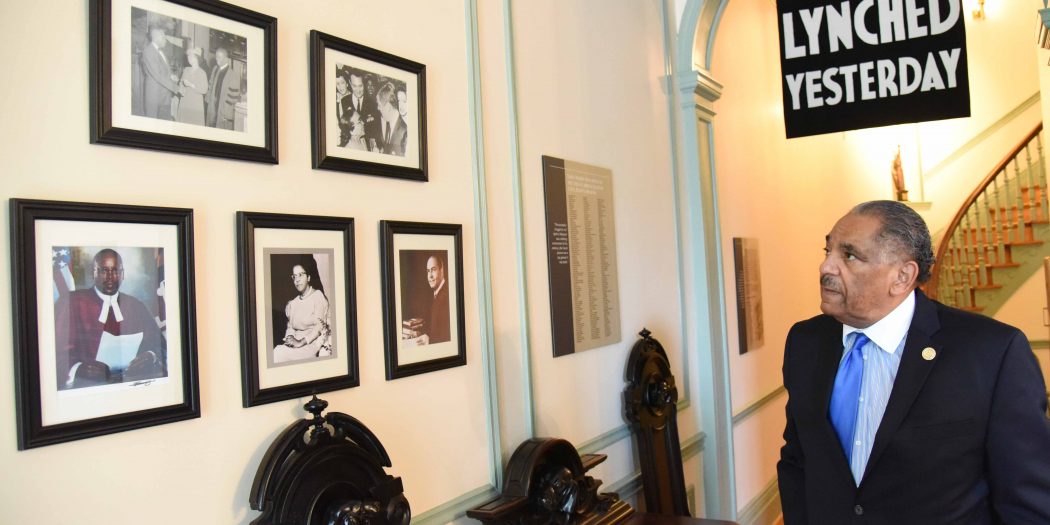Baltimore – Today, the long-awaited reopening of the Lillie Carroll Jackson Civil Rights Museum was brought to fruition as Morgan State University President David Wilson, along with members of the Jackson-Mitchell Family, local and state leaders, and members of the Morgan family joined to cut the ribbon signifying the historic property as officially operational for public touring and research learning opportunities. The living museum, which underwent a substantial and carefully conducted $3 million restoration, highlights the life and legacy of its namesake – Dr. Lillie Carroll Jackson, a former Baltimore Chapter NAACP president and civil rights activist.
“Dr. Jackson’s participation in Baltimore’s Civil Rights Movement was vital to initiating significant change and we’re proud to share that history with the world, introducing her contributions to a new generation of museumgoers,” said Dr. David Wilson. “With the reopening of this important piece of Civil Rights history, we are able to further expand Morgan’s educational offerings on the movement and create a place that offers a unique learning experience.”
The newly modernized museum, which is located a short drives distance from the Morgan campus in Baltimore’s Bolton Hill Community, services the University’s museum studies program and houses two period rooms along with six galleries of exhibits throughout the converted 4-story row home. Included among the exhibits are drawings, paintings, letters, photographs, and historic documents related to the Civil Rights Movement. The museum’s new and/or enhanced features include a separate garage structure converted into a Resource Center for scholars; digital friendly systems and technological upgrades; an elevator; and rehabilitated structural and architectural components.
Restoration for the project was awarded to Gant Brunnett Architects, with additional contract work handled by Commercial Interiors, Hayles & Howe (Plasterwork), and Crenshaw Lighting.
Dr. Lillie Carroll Jackson was a renowned advocate for the Civil Rights Movement and served for more than three decades as president of the Baltimore Chapter of the NAACP. Her home was a regular meeting place for organizing civil rights campaigns. In the wake of her passing in 1975, Jackson requested that her home be used as a living museum to honor those individuals that fought bigotry in Baltimore. In continuation of its mission, the State Legislature transferred the property to Morgan in June of 1996. The museum remained closed until now due to the need for extensive repairs and renovations.
The Lillie Carroll Jackson Civil Rights Museum is one of two museums owned and operated by the University, the other being The James E. Lewis Museum of Art and Culture. Located at 1320 Eutaw Place, Baltimore, Maryland, public admission to the Lillie Carroll Jackson museum is free of charge. Beginning July 1, 2016, until permanent full-time staff is in place, museum tours will be conducted by appointment only by calling (443) 885-3895.
Morgan State University, founded in 1867, is a Carnegie-classified Doctoral Research Institution offering more than 70 academic programs leading to bachelor’s degrees as well as programs at the master’s and doctoral levels. As Maryland’s Public Urban Research University, Morgan serves a multiethnic and multiracial student body and seeks to ensure that the doors of higher education are opened as wide as possible to as many as possible. More information about the university is available at www.morgan.edu.
# # #
MEDIA CONTACT(S):
Clint Coleman or Larry Jones


